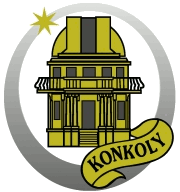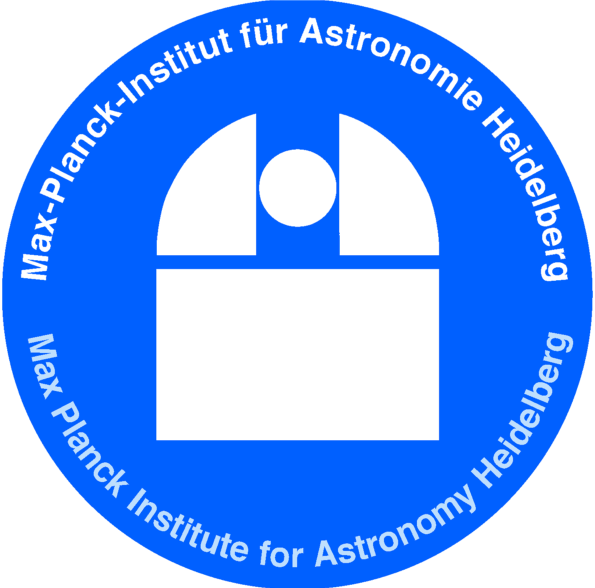Program (last updated: Oct 10)
| Oct 10, Monday | ||
| 9:10 – 9:50 | Introduction | Thomas Henning |
| 09:50 – 10:10 | Planet formation in young multiple systems | Stéphane Guilloteau |
| 10:10 – 11:25 | coffee break | |
| 11:25 – 11:45 | Surface Density Perturbations in TW Hya Traced by Molecular Emission | Richard Teague |
| 11:45 – 12:05 | Small disks observed with ALMA | Stéphane Guilloteau |
| 12:05 – 12:25 | Mid-infrared variability of young stellar objects: implications for inner disk structure | Péter Ábrahám |
| 12:25 – 14:25 | lunch break (optional program at 13:50: 3D video presentation) | |
| 14:25 - 15:00 | The Long Way From Dust to Planetesimals | Til Birnstiel |
| 15:00 – 15:20 | Chemistry of cold dense cores and initial conditions for disks chemistry | Maxime Ruaud |
| 15:20 – 15:40 | The role of surface chemistry and non-LTE in methanol line excitation in TW Hya | Dmitry Semenov |
| 15:40 – 16:40 | coffee break | |
| 16:40 – 17:15 | Lifetime of the solar nebula constrained by meteorite paleomagnetism | Benjamin P. Weiss |
| 17:15 – 17:35 | Studying disks through episodic accretion and variability: exploring the time dimension | Aurora Sicilia-Aguilar |
| 17:35 – 17:55 | Episodic accretion as time-dependent initial condition for planet-formation | Ágnes Kóspál |
| Oct 11, Tuesday | ||
| 9:00 – 9:35 | Tracing the Ingredients of Habitable Worlds | Ted Bergin |
| 9:35 – 9:55 | DCO+, DCN, N2D+, and H2CO in the disk of HD163296 | Michiel Hogerheijde |
| 9:55 – 10:40 | The ice reservoir and snow lines in protoplanetary disks | Michiel Min |
| 10:40 – 11:30 | coffee break | |
| 11:30 – 12:05 | Ice chemistry during the epoch of planet formation | Catherine Walsh |
| 12:05 – 12:25 | The importance of chemical evolution for setting the volatile
composition in planet-forming regions |
Christian Eistrup |
| 12:25 – 14:25 | lunch break (optional program at 13:50: visit of the observatory library) | |
| 14:25 – 15:00 | Giant planet formation via pebble accretion | Bertram Bitsch |
| 15:00 – 15:20 | Millimeter-wave polarization of transition disks due to dust scattering | Adriana Pohl |
| 15:20 – 15:40 | Dust coagulation with porosity evolution | Akimasa Kataoka |
| 15:40 – 16:40 | coffee break | |
| 16:40 – 17:00 | The Heidelberg planetesimal factory | Til Birnstiel |
| 15:00 – 17:20 | Spirals, gaps and horseshoes in protoplanetary discs | Giovanni Dipierro |
| 17:20 – 17:40 | Vortex-aided planet formation | Zsolt Regály |
| Oct 12, Wednesday | ||
| 9:00 – 9:35 | Vertical transport of dust, ice, and water in planet-forming regions | Sebastiaan Krijt |
| 9:35 – 10:10 | Linking the Formation History of Planets with their Spectrum | Christoph Mordasini |
| 10:10 – 10:30 | How the circumplanetary disk affects the observability of the young, accreting planets? | Judit Szulágyi |
| 10:30 – 11:30 | coffee break | |
| 11:30 – 11:50 | Characterization of planetary systems during the SHINE/SPHERE direct imaging survey | Mickael Bonnefoy |
| 11:50 – 12:25 | Diverse clouds in chemically diverse planetary atmospheres | Christiane Helling |
| 12:25 – 14:25 | lunch break (optional program at 13:50: visit of the telescope in the observatory garden) | |
| 14:25 – 14:45 | Composition and the mass-radius relation of exoplanets | Allona Vazan |
| 14:45 – 15:20 | How to design a planetary system for different scattering outcomes | Mark Wyatt |
| 15:20 – 15:40 | ALMA observations of HD 181327 and Eta Corvi debris discs | Sebastian Marino |
| 15:40 – 16:40 | coffee break | |
| 16:40 – 17:00 | New ALMA observations of the beta Pictoris disk: exocometary
gas and dust from outward migration of beta Pic c |
Luca Matrà |
| 17:00 – 17:20 | Evolution of gas in debris discs, towards understanding observations | Quentin Kral |
| 17:20 – 17:40 | Self-stirring in young spatially resolved debris disks | Attila Moór |
| ~19:00 | Conference dinner (at Rudas bath) | |
| Oct 13, Thursday | ||
| 9:00 – 9:35 | Heat sources in early planetesimals | Ákos Kereszturi |
| 9:35 – 9:55 | Searching for biosignatures in exoplanetary impact ejecta | Gianni Cataldi |
| 9:55 – 10:15 | Testing the formation paradigm of differentiated planetesimals in the Solar System | Dagmara Oszkiewicz |
| 10:15 – 11:15 | coffee break | |
| 11:15 – 11:50 | Collision history of the Kuiper belt and binary Kuiper belt objects | Csaba Kiss |
| 11:50 - 12:25 | Closing remarks | Edwin Bergin |
| 12:25 – 14:25 | lunch break | |
| ~15:00 | Social program (boat trip on the Danube) | |


